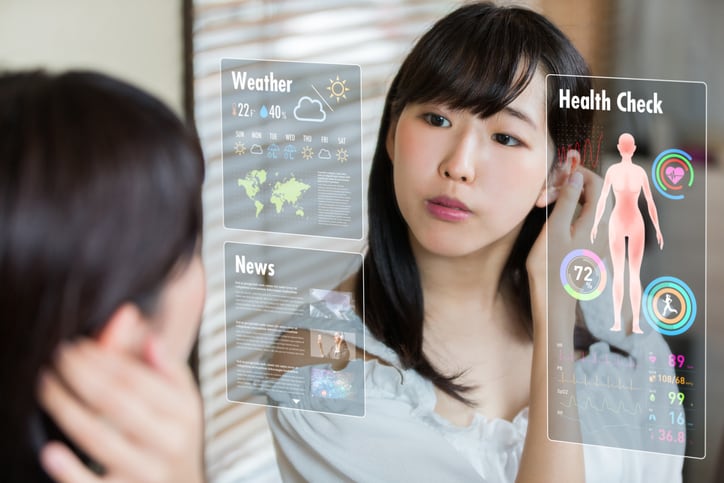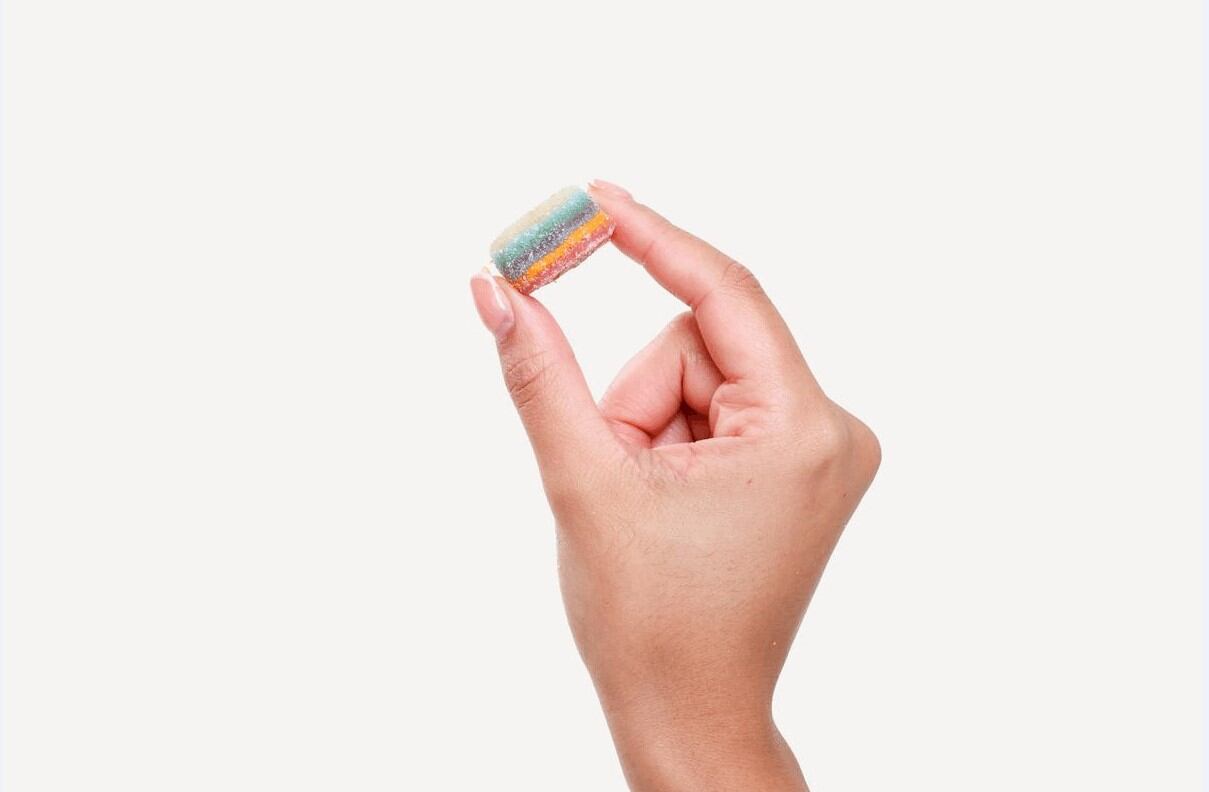Last month at the annual CES tradeshow in Las Vegas, US, organised by the Consumer Technology Association and considered one of the most influential tech trade shows in the world, two beauty majors unveiled innovations. L’Oréal launched two beauty tech prototypes: a handheld makeup applicator ‘Hapta’, designed for users with limited hand and arm mobility, and a precision brow printing tool ‘Brow Magic’, developed in partnership with Korean temporary tattoo specialist Prinker – a company it had since acquired a minority stake in. Johnson & Johnson also launched a 3D-printed personalised skin health supplement under its Neutrogena brand, in partnership with UK customised nutrition firm Nourished.
But, broadly speaking, Robin Raskin, founder of The Virtual Events Group and veteran CES attendee and collaborator, said beauty stayed in the shadows of human health and wellbeing at this year’s show.
Medical tech ‘dabbling in beauty’
“What you saw more of this year was health, in particular feminine health – infertility, menopause, talking about your period; things that were on the periphery before at CES which are becoming more mainstream,” Raskin told CosmeticsDesign-Europe.
“…The medical part of the show, they kind of came close to dabbling in beauty,” she said.
There were many medical tech companies, for example, offering tracking tools to improve overall nutrition, wellbeing, fatigue and more, which could ultimately improve what consumers considered ‘beauty’, she said, but only indirectly.
Asked if these medical or pure-tech companies could make strides in beauty and personal care, Raskin said: “I think there are things that are beauty adjunct.”
There were a lot of smart mirrors, for example, offering up-close analysis of skin and pores, she said. First and foremost, most of these innovations were designed to recommend better hydration, sleep or nutrition – focused on improving daily behaviours – but, ultimately, she said this could be stretched into the realms of beauty routines.
“Again, it’s tech, but it’s more health than beauty,” Raskin said. “But if you believe that beauty and health kind of go together, I think that’s going to be really important for the next six months.”
“…To me, you’re seeing inner beauty and outer beauty mixing,” she said.
Straight-up smart beauty ‘wasn’t that big a deal’
Beauty tech in its purest form, Raskin said – think smart makeup applicators, digital skin health face masks and future perfumery concepts – wasn’t as visible this year compared to prior years.
“It seems like, and maybe it was the pandemic, but beauty wasn’t as – other than the accessibility piece and the vitamins – beauty wasn’t that big a deal.”
Innovations in beauty had carried softer messaging around sustainability and usability this year but were less ground-breaking, minus some exceptions of course, she said.
Femtech, however, which arguably bridged health and beauty, she said, had been huge at this year’s show.
“This whole idea of just caring for a woman’s body overall is going to be more and more important,” she said, whether that be a sharper focus on menopause health, improving fertility tracking and monitoring and catering to periods.
Femtech had certainly been flagged in recent months by trend-watchers as a category to watch. Andrew McDougall, director of beauty and personal care research at Mintel, said sexual health was a key trend to watch this year, and within this femtech would gain serious ground.
Personalised nutrition experts at Qina also said opportunities in female technology to address health conditions were vast, following an increased awareness of gender-specific health conditions and recent technological advances.




